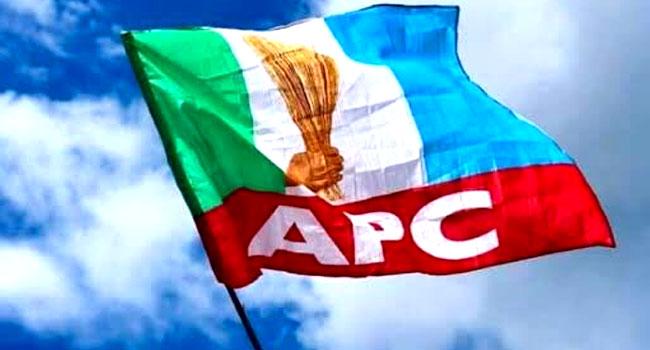State governors elected on the platform of the All Progressives Congress (APC) visited former President Muhammadu Buhari at his residence in Kaduna on Monday, where they raised concerns about the growing speculation of defections within the party.
The governors, led by Imo State Governor Hope Uzodimma, Chairman of the All Progressives Governors Forum, met with Buhari in a closed-door session.
During the meeting, they praised the former president’s accomplishments during his tenure, which they believe laid a solid foundation for Nigeria’s future development.
However, beyond the formal Sallah visit, the governors’ primary concern was urging Buhari to intervene and persuade his loyalists not to leave the APC.
As reported by Vanguard, the party has recently faced speculation of defections, particularly from individuals aligned with the now-defunct Congress for Progressive Change (CPC), which constitutes a significant bloc within the APC.
These defections, according to the governors, could pose a severe threat to the APC’s future, especially as the party prepares for the 2027 general election.
The APC governors, aware of the defection of some of Buhari’s loyalists to the Social Democratic Party (SDP), sought the former president’s assistance in preventing further exits.
One of the earliest defectors was former Kaduna State Governor Nasir El-Rufai, who reportedly received Buhari’s blessing to leave the APC.
Additional defections from Buhari’s former cabinet members, as well as party members from his home state of Katsina, have further fueled the concerns.
Sources revealed that the governors specifically asked Buhari to intervene with former Minister of Justice and Attorney General Abubakar Malami, SAN, and former Minister of State for Education, Chukwuemeka Nwajiuba, urging them not to abandon the APC.
However, according to insiders, Buhari appeared reluctant to interfere in these individuals’ political choices.
He reportedly expressed that figures like Nwajiuba and Malami should be allowed to decide their party affiliations independently, a stance that has been consistent throughout his political career.
This development comes at a pivotal time for the APC, as it faces both internal conflicts and external pressures ahead of the 2027 elections.
The party has been struggling with disagreements over its presidential candidate selection process, particularly following the 2022 National Working Committee’s adoption of indirect primaries.
This decision, which rejected a consensus arrangement, has created tension within the party, particularly among those from the CPC bloc, to which Buhari belonged before the formation of the APC in 2013.
The potential defection of prominent figures such as Malami, Nwajiuba, and others could significantly weaken the APC’s standing, prompting the urgent intervention of the party’s governors.
Yet, Buhari’s decision to distance himself from the issue has raised questions about the future of the APC as it faces mounting internal and external challenges.


